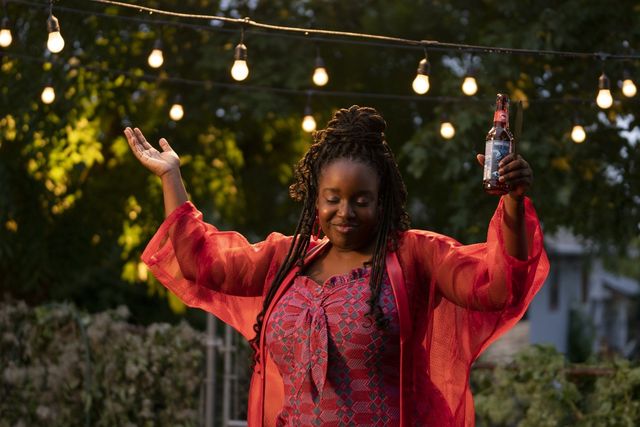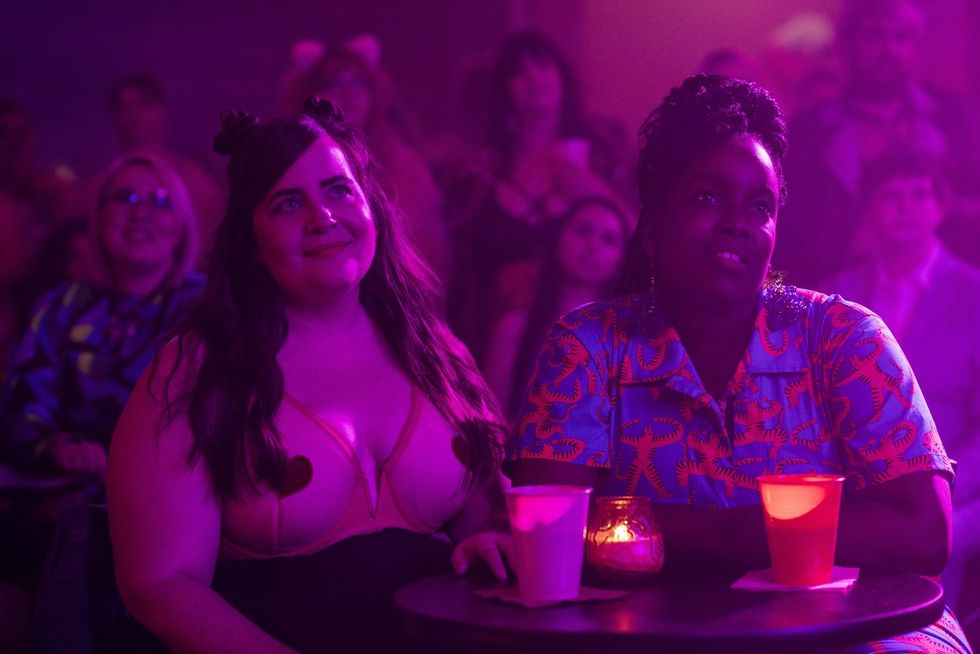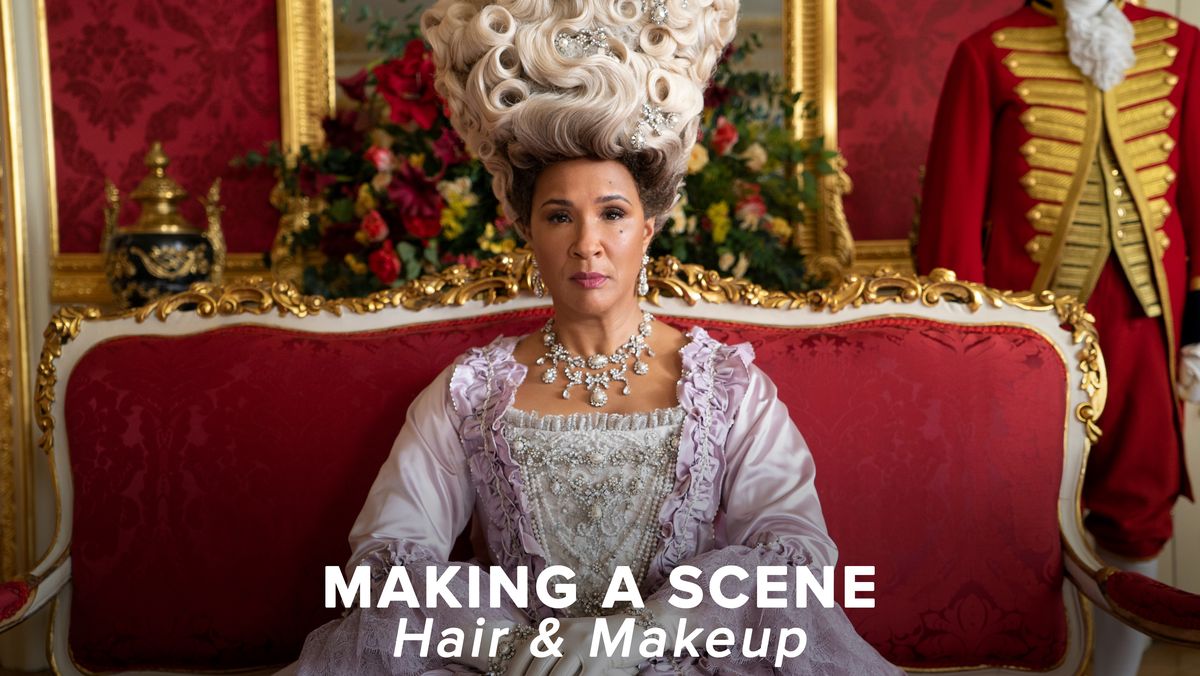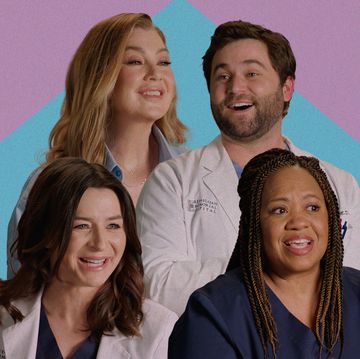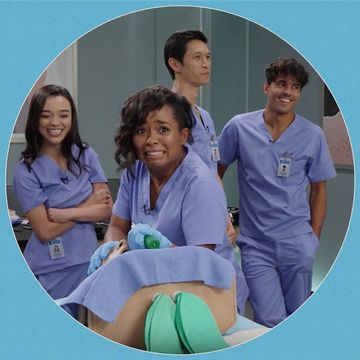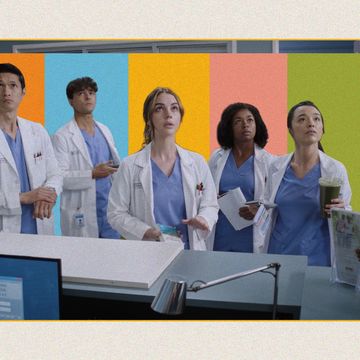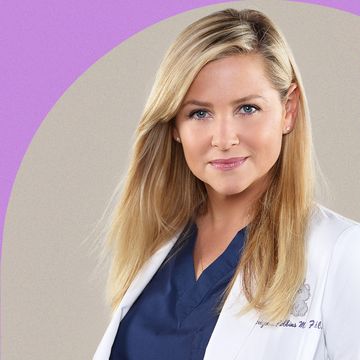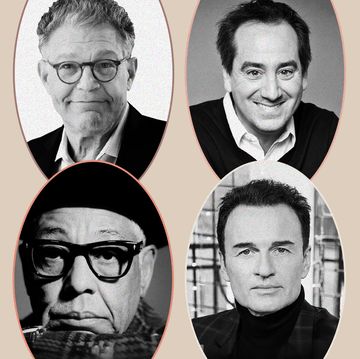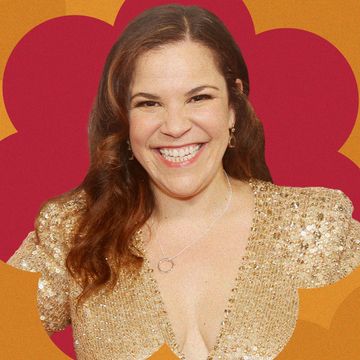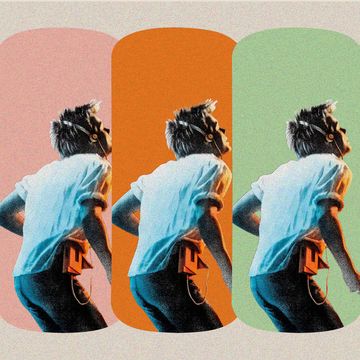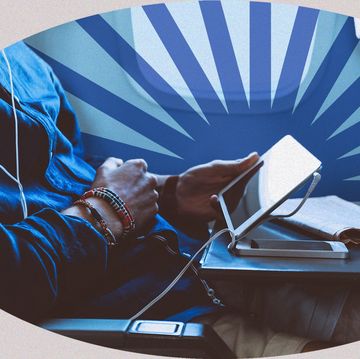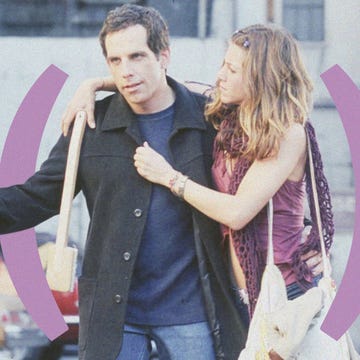With its second season, Hulu's hit comedy Shrill accomplishes quite a feat: it continues telling a fun, endearing story while making up for its first season slipups. While the series was hailed by critics and fans alike for centering Annie (Aidy Bryant) — a plus-size woman trying to get her life together — the show had its flaws, especially when it came to the character of Fran.
Played by Lolly Adefope, Fran is Annie's best friend and roommate, and she's also a black lesbian. During the first season, I found myself frustrated by the way Fran was flattened into little more than Annie's confidant, rarely receiving the support she needed and deserved from her best friend. As I watched, I was worried that this hilarious, honest, and relatable woman was being twisted into little more than a token. But in the second season, I am confident Shrill finally understands Fran's value.
In much of season one, Fran’s arc plays second to Annie’s, which is unsurprising given that Annie is the protagonist. Still, the basis of their friendship seems to be that Fran is not only supportive, but she also isn't afraid to tell Annie the truth. Fran comforts Annie as she cries, she holds Annie's hand while she gets an abortion, and she encourages Annie to demand more of her boyfriend, Ryan (Luca Jones), and of herself. In exchange for this support, Annie awkwardly inserts herself into Fran’s romantic relationships.
In one episode, Annie is so excited about getting her first article published that she bounds into the middle of an argument Fran is having with her girlfriend, only later commenting, “Ooh, I’m sorry, did I just make a breakup?” In another, Annie encroaches on Fran’s new relationship with a woman they met at the pool party, entering the room to cry about a fatphobic incident she experienced at work. Still, while Shrill could have fallen into the same trap as other shows and turned Fran into nothing more than Annie's supportive and sassy black friend, the show gives her just enough backstory (and memorable lines) to be a full character — even if we don't get to see much of it. As Minda Honey wrote in Vice, Shrill isn’t perfect, “but it does seem to be a show that is thinking about how to decenter whiteness even when the narrative is centered around a white character.”
In season two, however, Shrill renews its commitment to this goal in a real way and we see the relationship between Annie and Fran even out. In the first episode of the season Annie apologizes after Fran reminds her, “You have to be my friend, too.” This moment kicks off the show’s subtle, but apparent shift in prioritizing Fran's story (and screen time) alongside Annie, rather than forcing her to remain planted in the background.
The decision to dive deeper into Fran’s life is a meaningful one. Given that the face of queerness in popular culture is still often depicted as white — feeding into the deeply false idea that queerness is for white people and defined by white people — black lesbian on-screen representation is extremely important. And thankfully, it's beginning to change. As Jaelani Turner-Williams wrote in Bitch last year, “There’s recently been a much-needed shift in television’s approach to portraying black lesbian relationships: Characters are being given more complexity on-screen, as they are offered the chance to explore their queerness in ways typically reserved for white queer women.” From the character of Anissa Pierce in Black Lightning to Kat Edison on The Bold Type, black lesbian and queer women are able to see themselves on screen in ways that feel fully humanized. And by focusing more on Fran's story in season two, Shrill has also been part of that shift.
Fran’s love life has always been one of the most interesting things about her, so it makes sense that her strongest arc was related to her romantic life and how she engages with her partners. In the first episode of the show, Fran calls a woman she’s sleeping with “the other one,” and Annie projects her own issues (namely that she’s dating a f—kboy who asks her to hop over the back fence instead of leave through the front door) onto Fran, telling her how she’s acting is “f—ked up.” But there’s a marked shift in season two as Annie stops tangling her own insecurities with Fran’s romantic interests. When Fran is crushed after learning the woman she’s fallen for is dating someone else and she sleeps through the day to cope with her sadness, Annie crawls into her bed and comforts her. Season one Annie likely would have started ranting about her own problems, but here, she listens to Fran, asking thoughtful follow up questions and comforting her friend. In that moment, Fran gains the space to be vulnerable — which permeates other aspects of her life.
As Fran's fleshed out season-two arc progresses, instead of engaging in a slew of meaningless relationships she decides to put a pause on dating in order to prioritize herself. This is notable given the way that black women in real life tend to deprioritize self-love and growth in favor of helping others — something that's encouraged by popular culture through the trope of the sassy, wise, or strong black best friend. But Shill refuses to allow Fran to slip into that role.
Also notable in season two is that we meet Fran’s extended Nigerian family during her cousin’s wedding, thereby getting a deeper look at her background. On the drive to the venue, Fran says, “By the last day, I’ll be chewing my own arm off to escape" and tells Annie she's "there to be my emotional support animal.” Once they arrive, Fran struggles as she’s compared to the rest of the women in her family, who are straight and married (or about to be). It’s a vulnerable moment for Fran, and she finds herself being called into question. During one conversation with her female relatives, an exasperated Fran reiterates, “I didn’t choose to be gay. I am gay," before escaping to a nearby riverbank alone. In this scene, and episode at large, Fran is the focal point — she's the character deserving of all of our care and concern. While, in the moment, it’s a heated ordeal, ultimately we see the love between Fran and her mother, who never shunned her daughter for her sexuality.
This is another thing Shrill gets right: navigating homophobia, presenting it realistically without simply claiming, "Black people are homophobic,” which is a damaging trope popularized not only on-screen, but also in culture and politics.
The show’s writers also elect to have Fran and her cousin bond over their shared frustration with how often they are compared, rather than having them play into the stereotypes that black women are competitive with each other. It's yet another example of Shrill allowing its black character to be messy, complex, and nuanced instead of easy stereotypes.
In Shrill, Fran isn’t a pariah, and she isn’t a token — she’s a real person, and one deserving of adoration. Her relationship with Annie is "not just an endless parade of ‘Yas queen! You go girl,'" as Adefope told Shondaland in 2019, "it's grounded and realistic."
And in a medium that regularly depicts black and queer people as little more than the stylish, smart-mouthed sidekick, seeing a black queer woman not only allowed to be well-rounded but also one of the central figures of a popular series feels both revelatory and revolutionary.
Rachel Charlene Lewis is a writer, editor, and social media strategist. Her work has been published in Bitch, Allure, Refinery29, Teen Vogue, i-D, and elsewhere. She is on Twitter and Instagram as @RachelCharleneL, always.
Get Shondaland directly in your inbox: SUBSCRIBE TODAY
